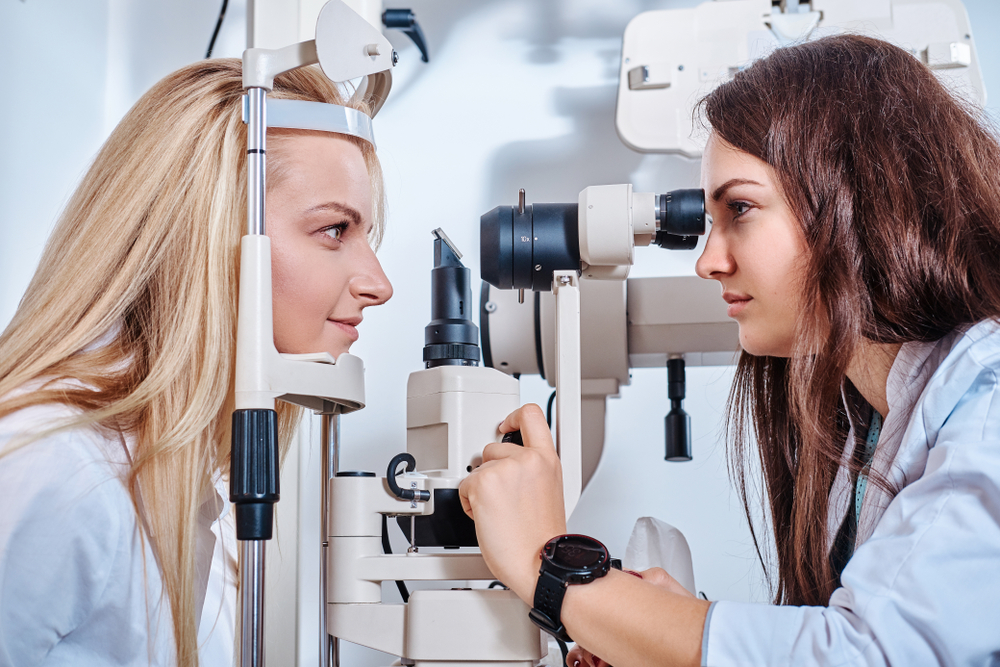
Taking care of your eyes is crucial for maintaining good vision and overall health. One of the key aspects of eye health maintenance is regular visits to the optometrist for comprehensive eye exams. These exams not only help detect any potential vision problems but also identify early signs of eye diseases.
What is a Comprehensive Eye Exam?
A comprehensive eye exam is a thorough evaluation of your vision and eye health. It goes beyond a simple vision screening and involves various tests to assess the overall condition of your eyes. During a comprehensive eye exam, the optometrist will not only determine your visual acuity but also examine the various structures of your eyes, including the cornea, lens, retina, and optic nerve.
Signs that You Need an Eye Exam
Regular eye exams are essential, but there are also signs that indicate you may need to schedule an eye exam sooner. If you experience any of the following symptoms, it is important to visit an optometrist:
- Blurred Vision: If you notice a sudden or gradual decline in your vision clarity, it could be a sign of an underlying eye condition.
- Eye Strain or Fatigue: If your eyes feel strained or tired after reading or using digital devices, it may indicate the need for a comprehensive eye exam.
- Frequent Headaches: Persistent headaches, especially after visual tasks, can be a sign of an uncorrected vision problem.
- Eye Discomfort or Redness: Persistent eye redness, itchiness, or discomfort may indicate allergies, dry eye syndrome, or other eye conditions.
- Difficulty Seeing at Night: If you have trouble seeing in low-light conditions or driving at night, it could be a sign of a vision issue.
Common Eye Conditions Detected during an Eye Exam
Comprehensive eye exams play a crucial role in detecting various eye conditions, including:
- Refractive Errors: These include nearsightedness, farsightedness, and astigmatism, which can be corrected with glasses or contact lenses.
- Cataracts: A clouding of the lens in the eye, which can lead to blurry vision and eventually require surgery.
- Glaucoma: A group of eye diseases characterized by damage to the optic nerve, often caused by high intraocular pressure.
- Age-related Macular Degeneration (AMD): A progressive condition that affects the central part of the retina, leading to vision loss in the center of the visual field.
- Diabetic Retinopathy: A complication of diabetes that affects the blood vessels in the retina, leading to vision impairment or even blindness if left untreated.
The Importance of Regular Eye Exams
Regular eye exams are crucial for maintaining good eye health and detecting potential issues early on. Many eye conditions, such as glaucoma and AMD, do not have noticeable symptoms in the early stages. Regular exams can help diagnose these conditions before they progress and cause irreversible vision loss. Additionally, comprehensive eye exams can also detect underlying health conditions like diabetes and high blood pressure, as certain changes in the eyes may be indicative of systemic diseases.
How Often Should You Visit the Optometrist for a Comprehensive Eye Exam?
The frequency of comprehensive eye exams depends on various factors, including your age, overall health, and any existing eye conditions. As a general guideline, it is recommended that adults between the ages of 18 and 60 with no known eye conditions should have a comprehensive eye exam annually. However, if you are over 60, have a family history of eye diseases, or have existing eye conditions, more frequent exams may be necessary.
It is important to note that these are general recommendations, and your optometrist may advise a different schedule based on your specific needs. If you experience any changes in your vision or have concerns about your eye health, it is always best to consult with your optometrist and follow their recommended examination schedule.
Tips for Maintaining Good Eye Health between Exams
While regular eye exams are essential, there are also steps you can take to maintain good eye health between visits to the optometrist:
- Practice Healthy Lifestyle Habits: Maintain a balanced diet rich in fruits and vegetables, exercise regularly, and avoid smoking, as these habits promote overall eye health.
- Protect Your Eyes from UV Rays: Wear sunglasses that block 100% of UV rays when outdoors, as prolonged exposure to UV rays can increase the risk of cataracts and other eye conditions.
- Use Proper Eye Protection: When engaging in activities that could potentially harm your eyes, such as playing sports or working with hazardous materials, wear appropriate eye protection to prevent injuries.
Schedule Your Next Eye Exam with 730 North Optometry Today
Regular visits to the optometrist for comprehensive eye exams are a vital part of maintaining good eye health. These exams help detect vision problems and eye diseases early on, allowing for timely intervention and treatment. By prioritizing your eye health and following the recommended examination schedule, you can take proactive steps towards preserving your vision and overall well-being.
Schedule your comprehensive eye exam and take the first step towards prioritizing your vision and eye health, visit 730 North Optometry at our office in Libertyville, Illinois, or call (847) 362-9900 to book an appointment today.








